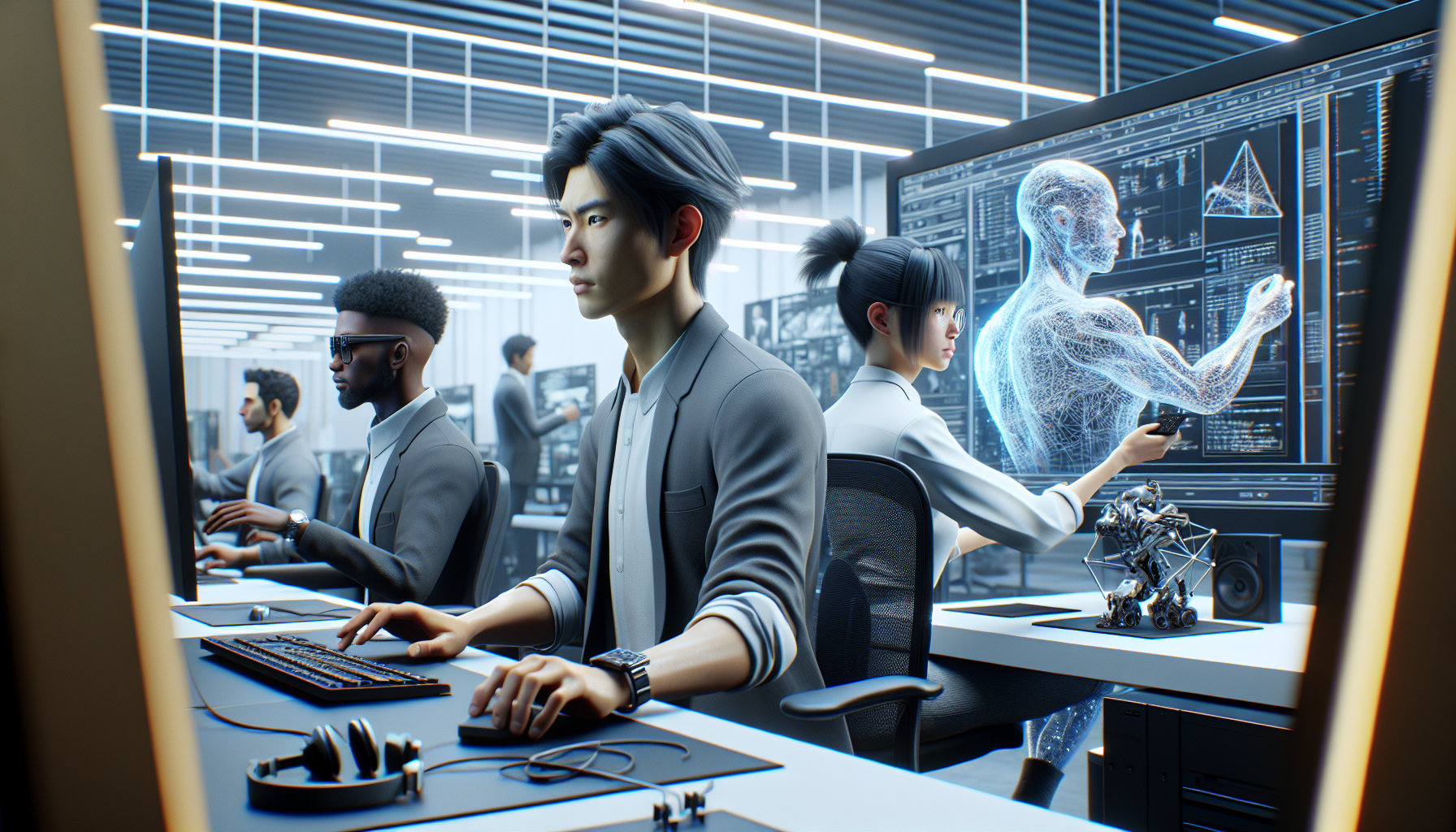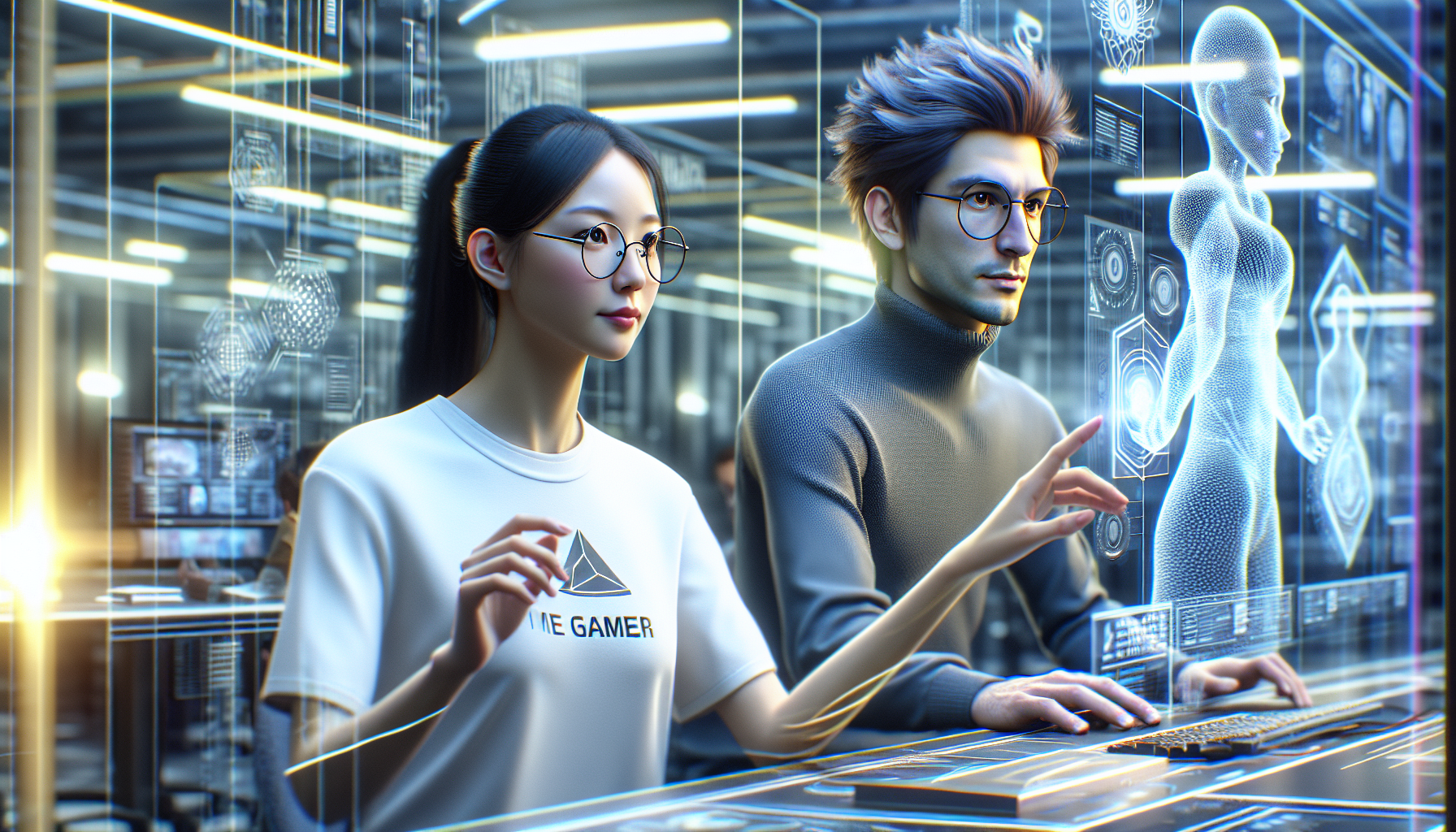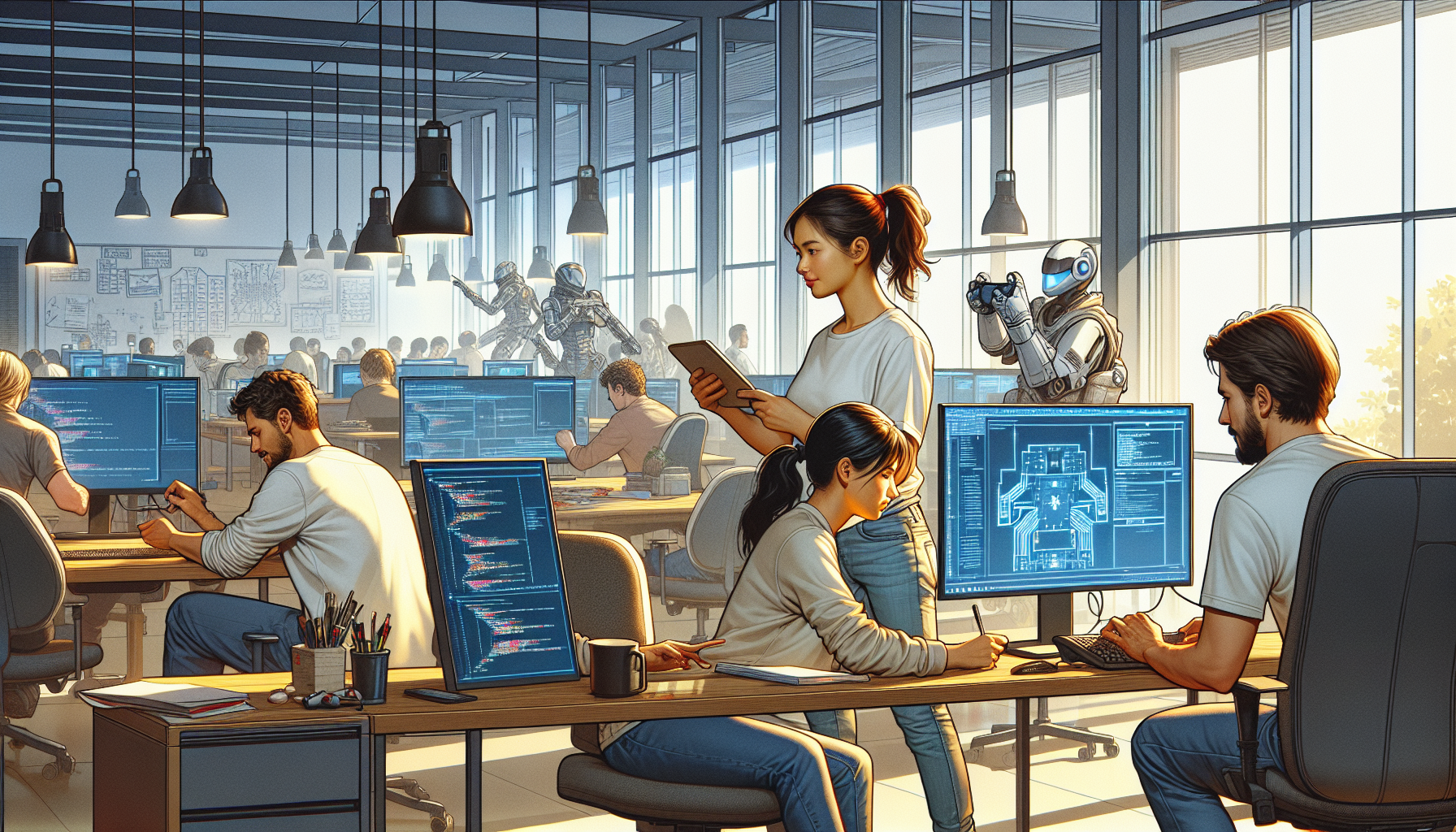
Key Points
- AI is set to redefine our experience and development of video games, improving game mechanics, creating more immersive worlds, and streamlining the development process.
- AI-generated characters, dialogue, and environments are among the most promising aspects of AI in game development.
- AI can assist in procedural tasks, data analysis, and optimization, freeing human developers to focus on creative and strategic aspects of game development.
- AI-driven procedural content generation is a game-changer for developers, allowing them to create vast, diverse, and detailed game worlds.
- AI can personalize gaming experiences by adapting gameplay elements based on individual player preferences and skill levels.
AI in Game Design
AI has revolutionized game design by enabling developers to create more dynamic and engaging gameplay experiences. By leveraging AI algorithms, developers can generate game levels, characters, and environments automatically, saving time and effort.
Furthermore, machine learning algorithms can analyze player data to understand preferences and tailor game design elements accordingly.
AI in Game Mechanics
The influence of AI on game mechanics has been revolutionary. Developers can now craft more intelligent and adaptive gameplay experiences. AI algorithms breathe life into non-player characters (NPCs) by equipping them with advanced behaviors, making in-game opponents feel more realistic and challenging.
AI’s impact goes beyond individual characters. AI-powered systems can analyze player actions in real time, dynamically adjusting difficulty and personalizing the experience. Machine learning techniques can further optimize game mechanics. For instance, they can improve pathfinding algorithms for efficient NPC navigation or use procedural generation algorithms to create diverse and engaging content.
Challenges and Solutions in Cloud-Based Gaming
Challenges in Cloud-Based Game Development
- Scalability Issues: One of the most significant challenges in cloud-based game development is scalability. As the number of players increases, the demand for server resources grows exponentially. This can lead to performance bottlenecks, causing lag and a poor gaming experience.
- Data Security Concerns: Data security is another critical issue in cloud-based game development. Storing game data and player information in the cloud exposes it to potential security breaches.
- Latency Problems: Latency is a common problem in cloud-based gaming, where the delay between a player’s action and the game’s response can significantly impact the gaming experience. High latency can make games unplayable, especially in fast-paced genres like first-person shooters or real-time strategy games.
Steps to Overcome Cloud-Based Game Development Challenges

Step 1: Implement Scalable Architecture
To address scalability issues, developers should implement a scalable architecture that can dynamically allocate resources based on demand. This involves using cloud services that offer auto-scaling capabilities, allowing the game to handle varying loads efficiently. Load balancing techniques can also distribute traffic evenly across servers, preventing any single server from becoming a bottleneck.
Step 2: Enhance Data Security
Enhancing data security involves implementing multiple layers of protection. Developers should use encryption to secure data both at rest and in transit. Secure authentication methods, such as multi-factor authentication (MFA), can prevent unauthorized access. Regular security audits and vulnerability assessments are essential to identify and address potential security risks.
Step 3: Optimize Network Infrastructure
Optimizing network infrastructure is crucial for reducing latency. This can be achieved by using edge computing, which brings computational resources closer to the players, reducing the distance data must travel. Implementing efficient data transmission protocols and optimizing server locations can also help minimize latency and improve the overall gaming experience.
Code Example: Implementing Scalable Architecture in Cloud-Based Game Development

In this section, we will provide a code example demonstrating how to implement a scalable architecture for a cloud-based game using Python and the Flask framework. The example will include auto-scaling and load balancing features.
from flask import Flask, request, jsonify
from flask_sqlalchemy import SQLAlchemy
from sqlalchemy import create_engine
from sqlalchemy.orm import sessionmaker
import boto3
app = Flask(__name__)
app.config['SQLALCHEMY_DATABASE_URI'] = 'sqlite:///game.db'
db = SQLAlchemy(app)
class Player(db.Model):
id = db.Column(db.Integer, primary_key=True)
username = db.Column(db.String(80), unique=True, nullable=False)
score = db.Column(db.Integer, nullable=False)
@app.route('/player', methods=['POST'])
def add_player():
data = request.get_json()
new_player = Player(username=data['username'], score=data['score'])
db.session.add(new_player)
db.session.commit()
return jsonify({'message': 'Player added successfully'}), 201
@app.route('/players', methods=['GET'])
def get_players():
players = Player.query.all()
return jsonify([{'username': player.username, 'score': player.score} for player in players])
def auto_scale():
client = boto3.client('autoscaling')
response = client.describe_auto_scaling_groups()
for group in response['AutoScalingGroups']:
if group['DesiredCapacity'] < group['MaxSize']:
client.set_desired_capacity(
AutoScalingGroupName=group['AutoScalingGroupName'],
DesiredCapacity=group['DesiredCapacity'] + 1
)
if __name__ == '__main__':
db.create_all()
app.run(debug=True)
Code language: HTML, XML (xml)This code example demonstrates a simple Flask application with a SQLite database to manage player data. The `add_player` endpoint allows adding new players, while the `get_players` endpoint retrieves all players. The `auto_scale` function uses the Boto3 library to interact with AWS Auto Scaling, increasing the desired capacity of the auto-scaling group when needed.
FAQs
How does AI improve game development?
AI improves game development by automating repetitive tasks, allowing developers to focus on creative aspects. It enhances gameplay mechanics by creating intelligent NPCs and adaptive game environments.
AI also helps in procedural content generation, making it easier to create vast and diverse game worlds. Additionally, AI-driven analytics provide insights into player behavior, helping developers make data-driven decisions to improve game design and player engagement.
What are the challenges of integrating AI in game development?
Integrating AI in game development presents several challenges, including the need for specialized skills and knowledge. Developers must understand machine learning algorithms and data analysis techniques to implement AI effectively.
Additionally, AI models require large datasets for training, which can be time-consuming and resource-intensive. Ensuring that AI behaves in a way that enhances the gaming experience without causing frustration or imbalance is another significant challenge.
Can AI replace human game developers?
AI cannot replace human game developers entirely. While AI can automate certain tasks and provide valuable insights, game development requires human creativity, intuition, and emotional understanding.
AI can assist developers by handling repetitive tasks, optimizing game mechanics, and analyzing player data, but the unique and compelling gaming experiences that players seek are still driven by human creativity and expertise.
Future Predictions for AI in Game Development

As AI technology continues to evolve, its impact on game development will grow. Here are five predictions for the future of AI in game development:
- Advanced NPCs: AI will create NPCs with more complex behaviors and interactions, making them indistinguishable from human players.
- Dynamic Storytelling: AI will enable games to generate dynamic narratives that adapt to player choices, providing unique experiences for each player.
- Procedural Content Generation: AI-driven procedural content generation will become more sophisticated, allowing for the creation of vast and diverse game worlds.
- Enhanced Game Testing: AI will streamline game testing processes, identifying bugs and performance issues more efficiently than manual testing.
- Personalized Gaming Experiences: AI will analyze player behavior and preferences to create personalized gaming experiences, increasing player engagement and retention.
More Information
- How Will AI Disrupt the Video Game Industry in 2024 | Kevuru Games – An article discussing the impact of AI on the video game industry.
- How Will Generative AI Change the Video Game Industry? | Bain & Company – Insights into the future of generative AI in the gaming industry.
- The Role of AI in Games Development: An Overview | Pocket Gamer.biz – An overview of AI’s role in game development.
- How is AI being used in the gamedev industry? – A Reddit discussion on how AI is being used in the game development industry.
Disclaimer
This is an AI-generated article with educational purposes and doesn’t intend to give advice or recommend its implementation. The goal is to inspire readers to research and delve deeper into the topics covered in the article.
- Remote Hiring in 2025 - April 5, 2025
- Burnout in Remote Teams: How It’s Draining Your Profits - January 27, 2025
- Signs You’re Understaffed - January 20, 2025
